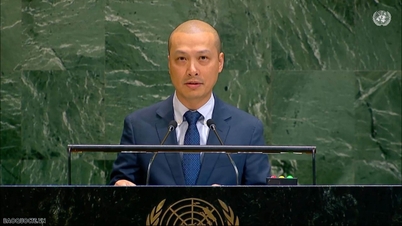As the last meeting of the year, the European Union (EU) Summit in Brussels this weekend has many issues to discuss, but the supplementary budget, including funding for Ukraine, seems to be the most headache-inducing issue.
 |
| There is plenty to discuss at this weekend’s EU summit, but the supplementary budget, which includes funding for Ukraine, looks set to be the biggest headache. (Source: Adobe Stock) |
Ukraine’s spending is bottomless. Last November, Ukraine’s Finance Minister Serhiy Marchenko warned that the country would run a $29 billion budget deficit in 2023 without Western support.
In the plan to supplement the budget to help Ukraine and cover unforeseen costs in the EU such as migration issues or unemployment benefits, Europe plans to spend up to 66 billion USD, of which 50 billion USD will be for Ukraine.
However, the plan is facing problems because it comes at a sensitive time, when support for Ukraine is starting to crack, and many EU members are having to borrow to finance huge spending after the Covid-19 pandemic as well as deal with the energy crisis.
Hungary opposes funding for Ukraine, saying that the country still has serious corruption, and that the effectiveness of European assistance to Ukraine in the past needs to be reviewed. Not only that, Budapest also opposes discussing Ukraine's membership status at this conference.
Some Nordic countries are not keen on the contingency payments, which could see EU member states pay an additional €27 billion. Their argument is: “We cannot give Brussels more cash at a time when the economy is in trouble.”
The divisions are making it difficult to reach a common agreement in Brussels this time, especially on aid for Ukraine. Of course, individual EU members can still provide bilateral aid to Ukraine, but the image of EU solidarity will be questioned.
Source



![[Photo] Keep your warehouse safe in all situations](https://vphoto.vietnam.vn/thumb/1200x675/vietnam/resource/IMAGE/2025/10/1/3eb4eceafe68497989865e7faa4e4d0e)


![[Photo] President of the Cuban National Assembly visits President Ho Chi Minh's Mausoleum](https://vphoto.vietnam.vn/thumb/1200x675/vietnam/resource/IMAGE/2025/10/1/39f1142310fc4dae9e3de4fcc9ac2ed0)
![[Photo] Hanoi morning of October 1: Prolonged flooding, people wade to work](https://vphoto.vietnam.vn/thumb/1200x675/vietnam/resource/IMAGE/2025/10/1/189be28938e3493fa26b2938efa2059e)

























































































Comment (0)